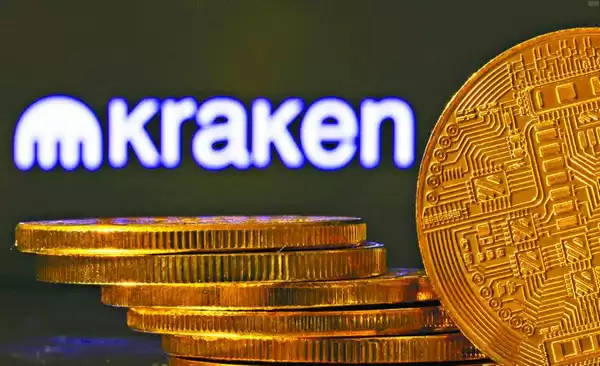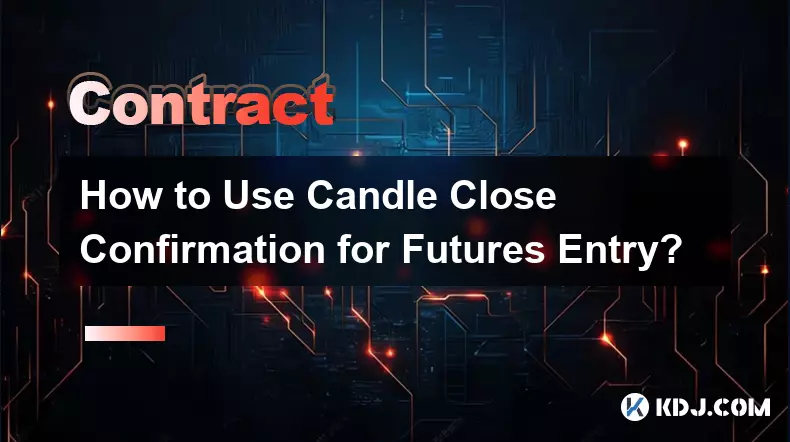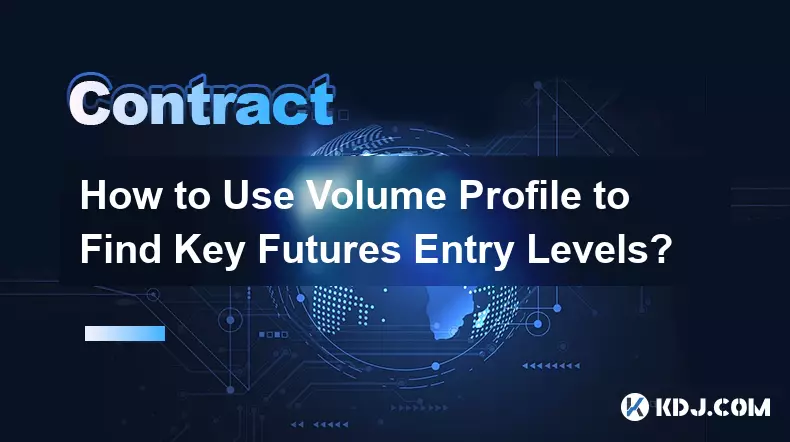-
 bitcoin
bitcoin $87959.907984 USD
1.34% -
 ethereum
ethereum $2920.497338 USD
3.04% -
 tether
tether $0.999775 USD
0.00% -
 xrp
xrp $2.237324 USD
8.12% -
 bnb
bnb $860.243768 USD
0.90% -
 solana
solana $138.089498 USD
5.43% -
 usd-coin
usd-coin $0.999807 USD
0.01% -
 tron
tron $0.272801 USD
-1.53% -
 dogecoin
dogecoin $0.150904 USD
2.96% -
 cardano
cardano $0.421635 USD
1.97% -
 hyperliquid
hyperliquid $32.152445 USD
2.23% -
 bitcoin-cash
bitcoin-cash $533.301069 USD
-1.94% -
 chainlink
chainlink $12.953417 USD
2.68% -
 unus-sed-leo
unus-sed-leo $9.535951 USD
0.73% -
 zcash
zcash $521.483386 USD
-2.87%
How to close Kraken contract trading
To close a Kraken futures contract, navigate to the "Trade" tab, select "Futures," enter the closing order details (order type, quantity, side), and monitor its execution to settle the position and calculate profit or loss.
Nov 19, 2024 at 12:44 pm

How to Close Kraken Contract Trading
Step 1: Navigate to the "Trade" TabOnce logged into your Kraken account, navigate to the "Trade" tab located on the left sidebar. This tab will provide you with various trading options, including margin trading and futures trading.
Step 2: Select "Futures"Under the "Futures" section, you will see a list of available futures contracts. Select the contract you wish to close by clicking on its corresponding row.
Step 3: Enter Your Closing OrderOn the contract's trading page, you will find the order book and order entry form. In the order entry form, enter the following details:
- Order Type: Choose "Market" to close your position at the current market price.
- Quantity: Enter the number of contracts you wish to close.
- Side: Select "Sell" to close a long position or "Buy" to close a short position.
Before submitting your order, carefully review the following:
- Order Type: Ensure that you have selected the correct order type ("Market").
- Quantity: Verify that you are closing the correct number of contracts.
- Side: Confirm that you are closing the appropriate position ("Sell" for long positions, "Buy" for short positions).
Once you are satisfied with your order details, click on the "Sell" or "Buy" button to submit it.
Step 5: Monitor Your Order ExecutionAfter submitting your order, you can monitor its status in the "Open Orders" section located on the left sidebar. Once your order is filled, you will see a confirmation message in the "Trade History" section.
Step 6: Settle Your PositionOnce your order is filled and your position is closed, you will need to settle your position. This involves transferring any remaining funds or assets to your main account.
Step 7: Calculate Your Profit or LossTo calculate your profit or loss from the closed position, subtract the opening price of the contract from the closing price. If the closing price is higher than the opening price, you have made a profit. If the closing price is lower than the opening price, you have incurred a loss.
Step 8: Repeat the Process for Other Positions (Optional)If you have multiple open positions, you can repeat the above steps to close each position individually. Alternatively, you can use the "Close All" button to close all open positions with a single click.
Disclaimer:info@kdj.com
The information provided is not trading advice. kdj.com does not assume any responsibility for any investments made based on the information provided in this article. Cryptocurrencies are highly volatile and it is highly recommended that you invest with caution after thorough research!
If you believe that the content used on this website infringes your copyright, please contact us immediately (info@kdj.com) and we will delete it promptly.
- Vitalik Buterin Rethinks Ethereum's L2 Chains: A New Era for Scalability and Privacy?
- 2026-02-05 22:20:01
- Espresso's Tokenomics Unveiled, Coinbase Roadmap Sparks Interest, and a Look at Modern Tokenomics
- 2026-02-05 22:15:01
- UBS Embraces Crypto and Bitcoin: A Strategic Pivot Towards Tokenization
- 2026-02-05 22:25:01
- Bitcoin Crash Triggers Altcoin Rotation: Navigating Investment Amidst Crypto Volatility
- 2026-02-05 22:20:01
- Crypto Crossroads: Big Bets, Bitter Losses, and Evolving Bitcoin Strategies
- 2026-02-05 22:15:01
- Digital Assets Go Big: London Forum Hails Stablecoin Surge and Institutional Onslaught
- 2026-02-05 22:10:02
Related knowledge

How to Manage Emotions and "Revenge Trading" in Futures?
Feb 05,2026 at 12:19am
Understanding Emotional Triggers in Futures Markets1. Market volatility directly impacts psychological states, often amplifying fear or euphoria based...

How to Use Candle Close Confirmation for Futures Entry?
Feb 05,2026 at 04:20pm
Understanding Candle Close Confirmation1. A candle close confirmation occurs when the final price of a candlestick settles beyond a predefined level, ...

How to Master "Position Sizing" to Prevent Total Account Wipeout?
Feb 06,2026 at 12:00am
Market Volatility Patterns1. Bitcoin price swings often exceed 10% within a 24-hour window during high-liquidity events such as ETF approval announcem...

How to Analyze Market Sentiment Using the Fear and Greed Index?
Feb 05,2026 at 07:40am
Understanding the Fear and Greed Index1. The Fear and Greed Index is a composite metric designed to quantify prevailing emotional states among cryptoc...

How to Secure Your Futures Account with Anti-Phishing Codes?
Feb 05,2026 at 08:40pm
Understanding Anti-Phishing Codes in Crypto Futures Trading1. Anti-phishing codes are unique alphanumeric strings generated by futures exchanges to au...

How to Use Volume Profile to Find Key Futures Entry Levels?
Feb 04,2026 at 11:39pm
Understanding Volume Profile Structure1. Volume Profile displays the distribution of traded volume at specific price levels over a defined time period...

How to Manage Emotions and "Revenge Trading" in Futures?
Feb 05,2026 at 12:19am
Understanding Emotional Triggers in Futures Markets1. Market volatility directly impacts psychological states, often amplifying fear or euphoria based...

How to Use Candle Close Confirmation for Futures Entry?
Feb 05,2026 at 04:20pm
Understanding Candle Close Confirmation1. A candle close confirmation occurs when the final price of a candlestick settles beyond a predefined level, ...

How to Master "Position Sizing" to Prevent Total Account Wipeout?
Feb 06,2026 at 12:00am
Market Volatility Patterns1. Bitcoin price swings often exceed 10% within a 24-hour window during high-liquidity events such as ETF approval announcem...

How to Analyze Market Sentiment Using the Fear and Greed Index?
Feb 05,2026 at 07:40am
Understanding the Fear and Greed Index1. The Fear and Greed Index is a composite metric designed to quantify prevailing emotional states among cryptoc...

How to Secure Your Futures Account with Anti-Phishing Codes?
Feb 05,2026 at 08:40pm
Understanding Anti-Phishing Codes in Crypto Futures Trading1. Anti-phishing codes are unique alphanumeric strings generated by futures exchanges to au...

How to Use Volume Profile to Find Key Futures Entry Levels?
Feb 04,2026 at 11:39pm
Understanding Volume Profile Structure1. Volume Profile displays the distribution of traded volume at specific price levels over a defined time period...
See all articles























![[Geometry Dash - Power Gauntlet] Rush by DHaner (with coin) [Geometry Dash - Power Gauntlet] Rush by DHaner (with coin)](/uploads/2026/02/05/cryptocurrencies-news/videos/origin_6984a77c2dcad_image_500_375.webp)


















































